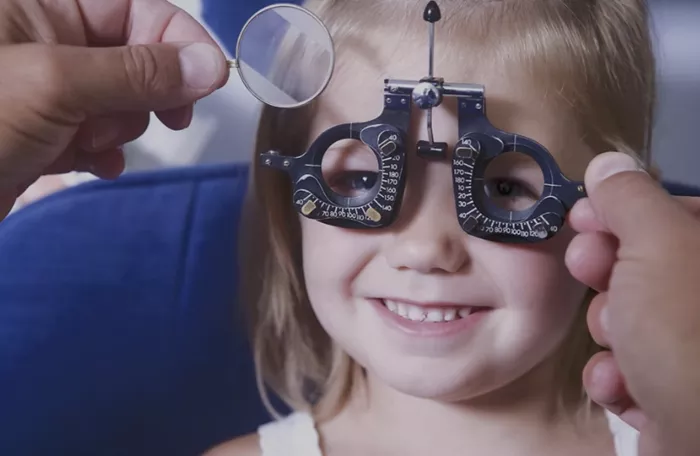In an era dominated by digital screens, the prevalence of myopia, or nearsightedness, has reached alarming levels, particularly among younger generations. Experts now warn that this trend could be classified as an epidemic, with children and young adults spending prolonged hours on digital devices being the most vulnerable.
Dr. Audrey Raley, the founder of Refined Eye Care, stresses the importance of early detection and intervention to manage the condition. Without proper care, myopia can progress, leading to severe long-term vision complications.
What Is Myopia?
Myopia is a refractive error that causes difficulty seeing distant objects clearly, making everyday activities like driving or watching television challenging. The condition occurs when the eye elongates, causing strain on the retina and optic nerve.
“Our eyes should be round, but in myopia, they stretch abnormally,” Dr. Raley explains. “This elongation increases the risk of serious conditions like retinal detachment, glaucoma, and macular degeneration—all of which can lead to permanent vision loss.”
Because the retina lacks pain receptors, myopia can worsen without noticeable symptoms. This makes regular eye exams essential, especially for children whose eyes are still developing and may not be able to communicate vision problems.
Treating Myopia
While glasses and contact lenses are commonly prescribed, Dr. Raley emphasizes that these are not the only solutions. Active management is key to slowing the progression of the condition.
In children, myopia can escalate quickly as their eyes continue to develop, while in adults, the condition generally stabilizes. However, both groups benefit from ongoing care to protect their eye health.
“Myopia isn’t just a vision issue—it’s a structural change in the eye that can result in serious complications down the road,” Dr. Raley says. “By taking a proactive approach through lifestyle adjustments and targeted treatments, we can significantly reduce the risk of long-term damage.”
Available Treatment Options
Refined Eye Care offers several effective treatments for managing myopia progression:
Atropine Drops: These medicated drops slow myopia progression by reducing eye elongation.
Specialized Contact Lenses: FDA-approved MiSight contact lenses, introduced in 2018, help reduce eye elongation by altering how light focuses on the retina.
Orthokeratology: This non-invasive treatment involves wearing rigid lenses overnight, which gently reshape the cornea, allowing for clear daytime vision without glasses or contacts.
Preventing Myopia Progression
Excessive screen time is a key contributor to the worsening of myopia. The constant strain from digital devices increases eye fatigue, making the condition more likely to progress.
Dr. Raley advises using the “Harmon Distance” method to prevent strain. This involves holding digital devices at least the length of an individual’s forearm from the face. Additionally, she recommends that children under two avoid screens entirely and that children under four limit screen time to no more than one hour per day.
Spending time outdoors is another simple yet highly effective intervention. Research shows that just 30 minutes of outdoor activity daily, using long-distance vision, can reduce myopia progression by up to 18%.
A Call to Action
Dr. Raley encourages parents to take a proactive approach in managing their children’s eye health. “The earlier we intervene, the better the outcomes. Regular eye exams allow us to catch subtle changes in vision that could indicate myopia progression or other serious conditions,” she says.
With advanced treatments available, patients—whether young or old—can safeguard their vision. Dr. Raley’s practice, Refined Eye Care & Eyewear Gallery, offers comprehensive eye care solutions for preventing and managing myopia. Regular eye exams are the first step in maintaining clear vision and protecting against more severe eye diseases.
Related topic:
Shraddha Eye Care Trust Launches Ophthalmic Wing at Sunday Village Clinic
10 Eye Exercises and Habits to Boost Vision Health
Doctors Urged to Lead Healthcare’s Future at BW Summit

